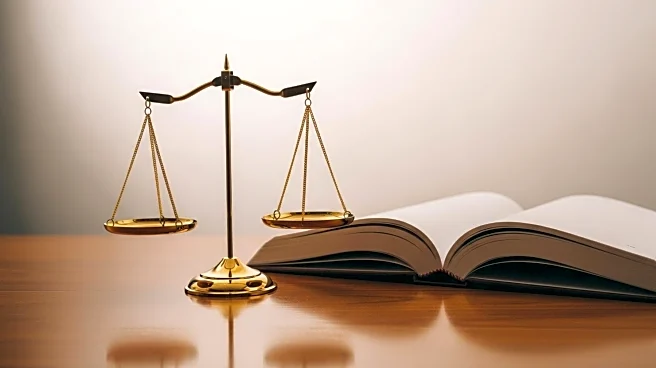What's Happening?
A US judge has given preliminary approval to a $1.5 billion settlement in the case of Bartz v. Anthropic, involving close to 500,000 titles. The settlement addresses claims that Anthropic used pirated content to train its AI models. The American Association of Publishers (AAP) has endorsed the settlement, viewing it as a significant step towards holding AI developers accountable for copyright infringement. The settlement does not resolve the 'fair use' question regarding AI training on copyrighted content, but it is seen as a move towards compensating authors and publishers for the unlawful use of their works.
Why It's Important?
The settlement is a landmark decision in the ongoing debate over copyright and artificial intelligence. It sets a precedent for AI companies to compensate rights holders for using copyrighted material without permission. This decision could influence future legal actions and policies regarding AI training data, potentially leading to more stringent requirements for licensing and compensation. The outcome is significant for authors and publishers, as it acknowledges the value of their intellectual property and the need for fair compensation. It also sends a message to AI developers worldwide about the importance of respecting copyright laws.
What's Next?
The US court-approved process for claimants will be published shortly, allowing authors and publishers to verify their works included in the settlement and pursue compensation. The settlement may prompt further legal challenges and discussions about the use of copyrighted content in AI training. Stakeholders in the publishing industry are likely to continue advocating for clearer guidelines and regulations to protect intellectual property rights in the context of AI development.
Beyond the Headlines
The settlement highlights ethical and legal challenges in the intersection of AI and copyright law. It underscores the need for AI companies to engage responsibly with the industries they rely on for content. The case may influence global discussions on AI regulation, encouraging transparency and accountability in the use of copyrighted material. It also raises questions about the balance between technological advancement and the protection of creative works.










